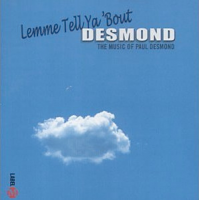Home » Jazz Articles » Interview » A Conversation with Benny Golson
A Conversation with Benny Golson
Art Blakey was a teacher... He was a teacher and didn' know that he was a teacher... He had such a penchant for swinging. He didn't know how not to swing and that really left a mark on me. So much so, that when I left him, I found I had great difficulty in playing with other drummers...

Benny Goodman
clarinet1909 - 1986

Dizzy Gillespie
trumpet1917 - 1993

Lionel Hampton
vibraphone1908 - 2002

Earl Bostic
saxophone, alto1913 - 1965

Art Farmer
flugelhorn1928 - 1999

Art Blakey
drums1919 - 1990
With over 300 compositions to his credit, two symphonies, countless scores to feature films and television series, the artistic depth and breadth of Benny Golson are immeasurable. He has received the prestigious Guggenheim Fellowship, the American Jazz Master Awards from the National Endowment for the Arts, Grammy nominations and two honorary doctorates from the prestigious Berklee School of Music in Boston. To commemorate his 50-year career, Golson will be honored on March 1st and 3rd at the Lincoln Center in New York City with a jazz extravaganza of his compositions. Entitled "The Magic of Benny Golson," these concerts will serve as a retrospective of his brilliant career as a composer and jazz performer. He has written a commissioned work for the occasion and will perform in a small format and with a jazz orchestra.
During a recent appearance at The Jazz Bakery in Los Angeles, we had a chance to sit down and chat about recent projects and happenings.
All About Jazz: When envisioning the music for your CDs, what are the determining factors that influence your selections? That is do musicians send you demos or do you meet with producers to decide which songs make the cut?
Benny Golson: Sometimes I hear things that are sent to me by other people. Sometimes they are musicians and sometimes they are not. But mainly I decide on the things that appeal to me and obviously, some of those things are my own. The producer might have something in mind also and of course, my mind is always working, trying to come up with melodies that I like first of all, and with the hope that others like it too.
AAJ: How would you describe yourself as a composer of jazz standards?
BG: Well, I like melodies. That's one thing that appeals to me. Ditties are okay.

Thelonious Monk
piano1917 - 1982
AAJ: Whom have you most enjoyed working with throughout your career?
BG: There have been many but strangely enough, the first two that I think of are singers! One is Diana Ross who is a consummate professional and the other is

Peggy Lee
vocals1920 - 2002
AAJ: Do you have any plans for a new CD?
BG: There's one in the works as we speak. It's titled, One Day, Forever. We started on it about three years ago! The reason it has taken so long is that we got the material from "live" concerts that I did at various places throughout Europe. But what we've added is a couple of songs that I composed and happened to write the lyrics to also, that

Shirley Horn
piano1934 - 2005

Lara Downes
pianob.1973
AAJ: Fantastic. We are surely looking forward to One Day, Forever, and of course the new symphony. As you know, contemporary gospel music has stepped out of the shadows and onto the global jazz scene. What are your thoughts on this new gospel jazz popularity since you've survived so many musical trends that often make or break a jazz musician's career?
BG: You know, the musical tastes of people go through phases. Just like television; dramas are popular sometimes, mysteries, love triangles, etc. Music is no different. Right now, hip hop is very popular and gospel music is popular. Sometimes gospel is so close to some of the rhythm and blues things that the only thing that is different are the words. And although I don't pursue that style, I know what it is because I grew up in the Baptist church where we'd have the visiting quartets and groups like that. However, I like some of the things that I hear coming from that element.
AAJ: You have remained in vogue globally while constantly updating your music for over 50 years. How do you control what some artists call "creative restlessness" and avoid negative controversy with your music?
BG: Creative restlessness? Well if you can fulfill that creative urge that you have and it turns out to be consequential—which means that there are some things that you aren't going to use. You don't use everything that you've ever thought of in the world. Some things you reject, even though they're your own. So, that in itself gives you a certain control over what you do. And as far as what you play, it's a matter of choice. You either play what you like or don't play what you don't like.
AAJ: Well, "funk" has maintained a strong influence on your jazz style. Is there another style that you would play if you had to do it all over again?
BG: Actually I do play other styles. Funk is a smaller part of it—believe it or not! I'm sort of a straight-ahead jazzman. I'm an old bebopper I guess. I don't play hip hop, and I don't play rhythm & blues even though I used to early in my career before I became a straight-out jazz saxophonist. But I prefer to play the jazz repertoire.
AAJ: What types of moments lead you to write a romantic ballad? A visit to a romantic city, a tune from a gondolier, etc... that type of inspiration so to speak.
BG: There are many things. It can be a beautiful sunset; it can be a beautiful scene with beautiful trees and mountains and a lake or things like that! But I think that 50% of what I write is inspired by just looking at, being with, and loving my wife, Bobbi.
AAJ: That's great. Absolutely fantastic! The softer side of your music is often fused with the funky edge on many of your songs. Is there one song that you feel exemplifies a "funky love" ballad?
BG: Yes, there is one! There's one and no one has heard it yet because I think I wrote it about a year and a half or two ago, called "I Love You." There is an old standard already out called "I Love You," (you can't copyright titles) and it's this "funky" kind of love ballad that you're talking about with my lyrics which tells a story. It's not just Moon in June or anything like that. It's something that I plan to give to Luther Vandross and

Al Jarreau
vocals1940 - 2017
AAJ: Well thank you. We're looking forward to it! As with your music, you have exercised great care in your selection of musicians that accompany you. Which producer would you say reflects the "Golson Sound" more?
BG: Well, actually none of them—per se reflect the Golson sound. The Golson sound emanates from Golson—and that's the way it should be. But there is a certain direction that they give in the studio and I feel that is necessary when I'm recording. When they're on the other side of the window there in the recording booth, sometimes they can hear things that I can't since I'm so close to it. They give suggestions here and there and many times they are right. And that makes for a successful marriage.
AAJ: What would you describe as the brightest ray of light in your musical career?
BG: I'd have to say that would be Art Blakey. Art Blakey was a teacher. He was didactic. He was a teacher and didn't know that he was a teacher. Just by the things that he said, the things that he did, and the way that he played the drums. Just by being with him for just about a year was like being enrolled in a college of higher education. He taught us all things because he had vast experience. He had such a penchant for swinging. He didn't know how not to swing and that really left a mark on me. So much so, that when I left him, I found I had great difficulty in playing with other drummers for a while.
AAJ: I would imagine so. Your musical journeys have crossed the Atlantic to Europe where an alliance of European jazz masters have entrenched you as an icon of jazz. How do European audiences differ from American audiences in their appreciation of your style?
BG: There seems to be more of an appreciation of American artists and that is easy to explain... the audiences there seem to have a greater appreciation. I think the Americans seem to be more blasЁҰ about it because it's always been here in America.
AAJ: These trans-Atlantic alliances are well established. Have you given any thought to doing an electronica version of some of your standards to give a new generation a dose of your great sax melodies?
BG: Actually, I used a synthesizer a few times—not many times. But I didn't use it electronically. I used it as a synthesizer to synthesize the sound of other instruments. I remember on one session I had the synthesizer sounding like three trombones. Another time, it was like extra trumpets in a trumpet section. It was cheaper too. But yes, I thought about electronic music but soon after, I forgot about it!
AAJ: Your walk of fame has taken you all over the world. By last count, how many performances have you done?
BG: No has ever asked me that question. But I would venture to say, thousands! It goes back 50 years or so!
Tags
Interview
benny golson
AAJ Staff
Benny Goodman
Dizzy Gillespie
Lionel Hampton
Earl Bostic
Art Farmer
Art Blakey
Peggy Lee
Shirley Horn
Lara Downes
Al Jarreau
Comments
PREVIOUS / NEXT
Support All About Jazz
 All About Jazz has been a pillar of jazz since 1995, championing it as an art form and, more importantly, supporting the musicians who make it. Our enduring commitment has made "AAJ" one of the most culturally important websites of its kind, read by hundreds of thousands of fans, musicians and industry figures every month.
All About Jazz has been a pillar of jazz since 1995, championing it as an art form and, more importantly, supporting the musicians who make it. Our enduring commitment has made "AAJ" one of the most culturally important websites of its kind, read by hundreds of thousands of fans, musicians and industry figures every month.






 Buy Now
Buy Now



















